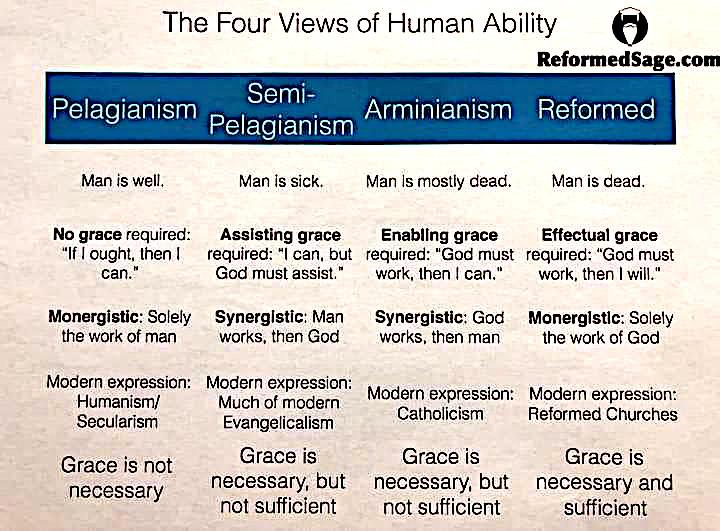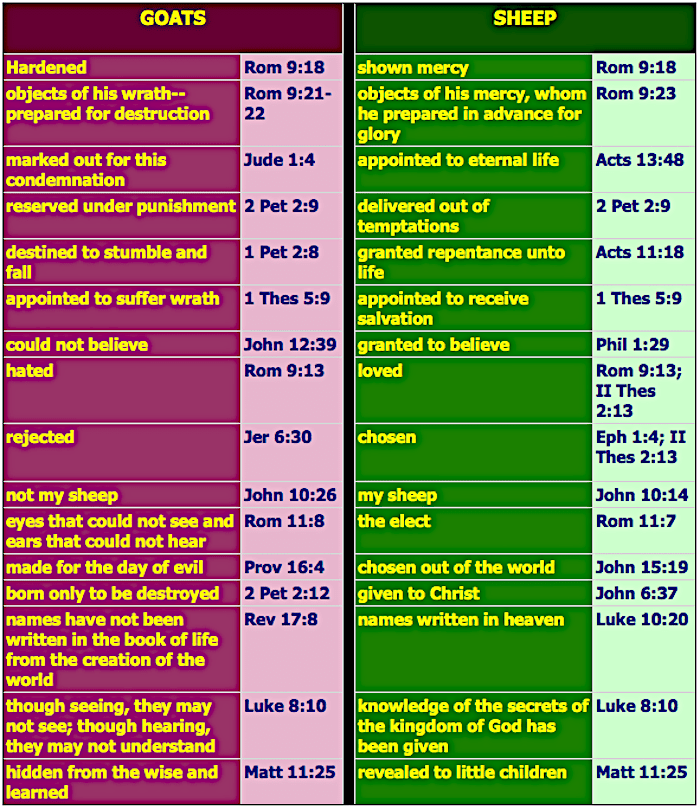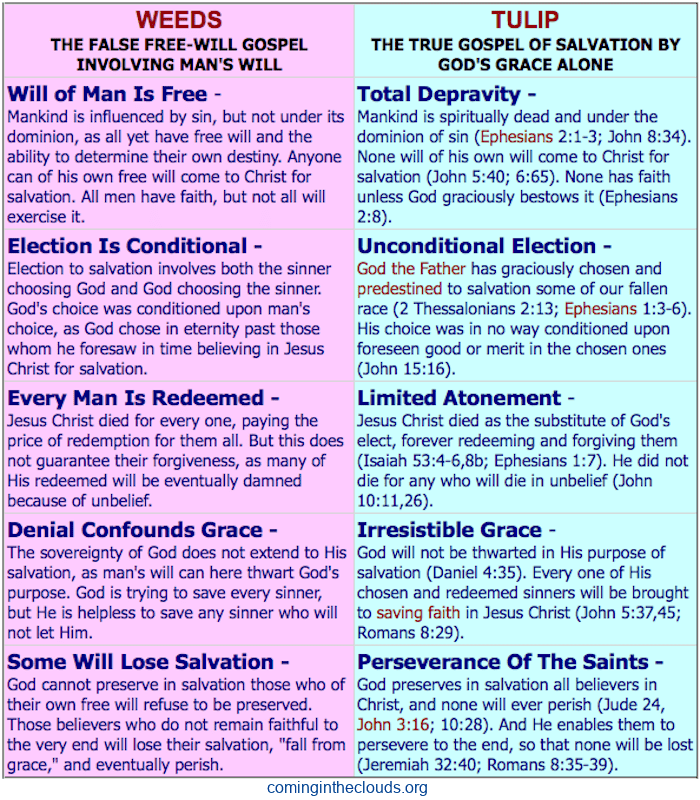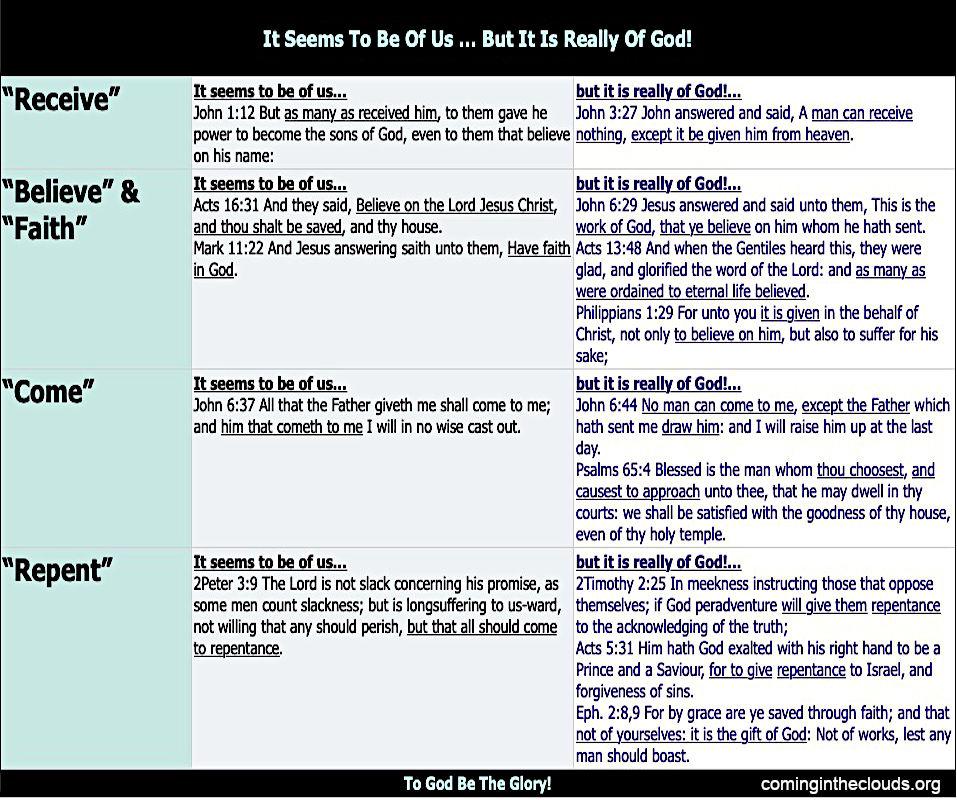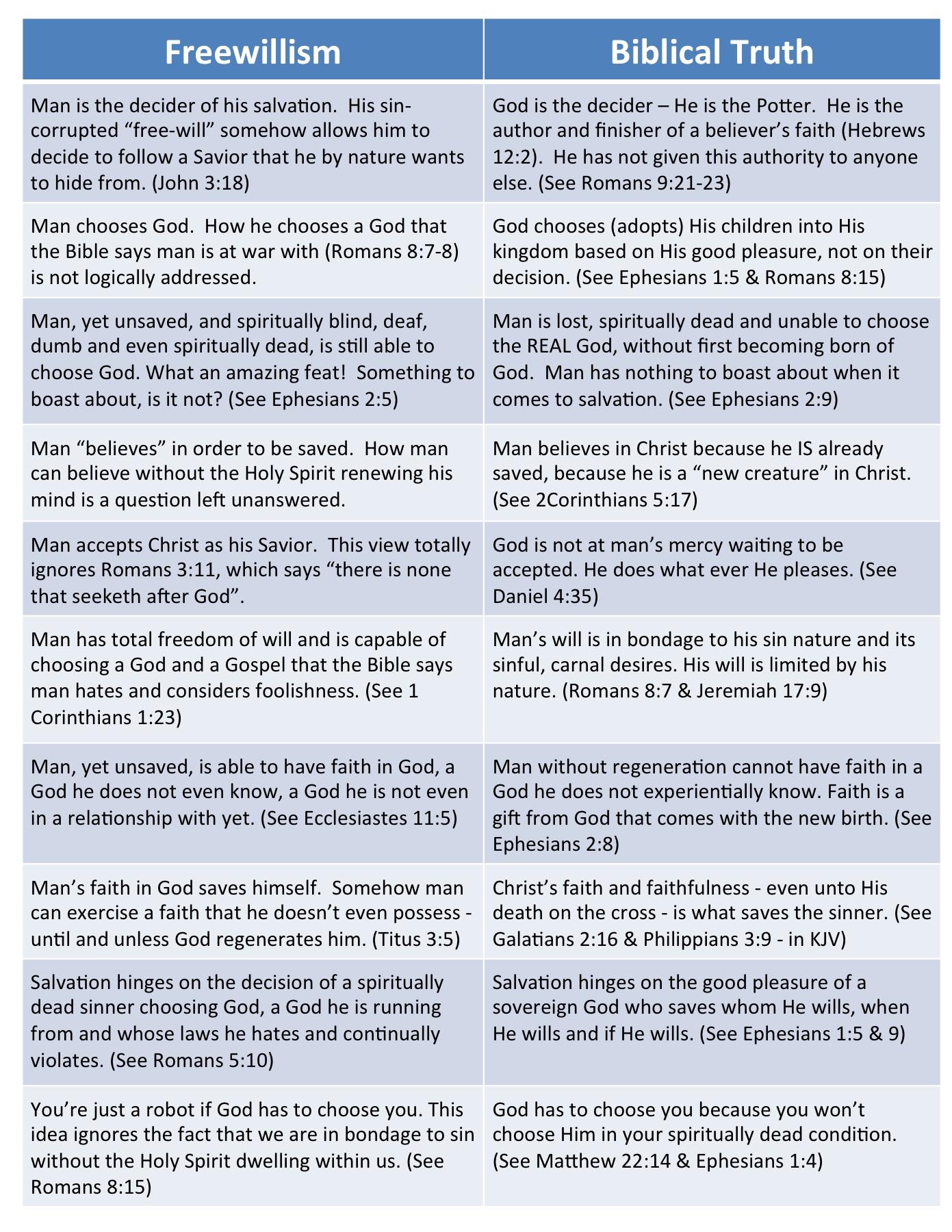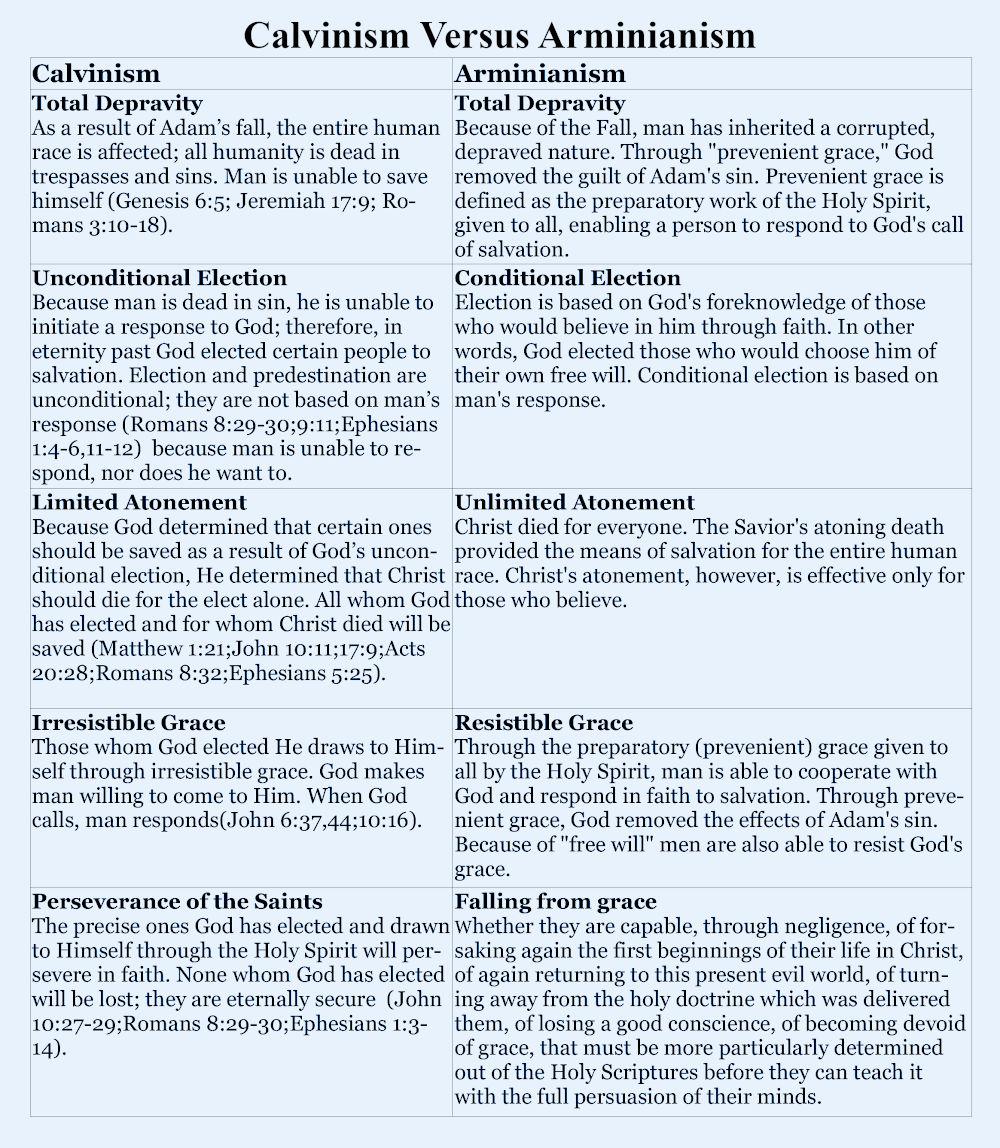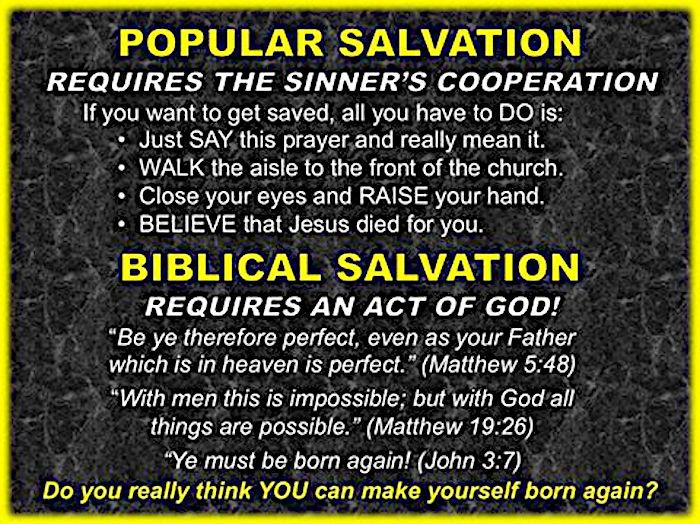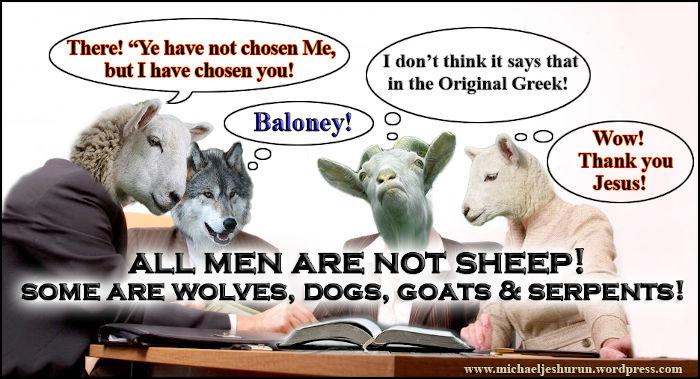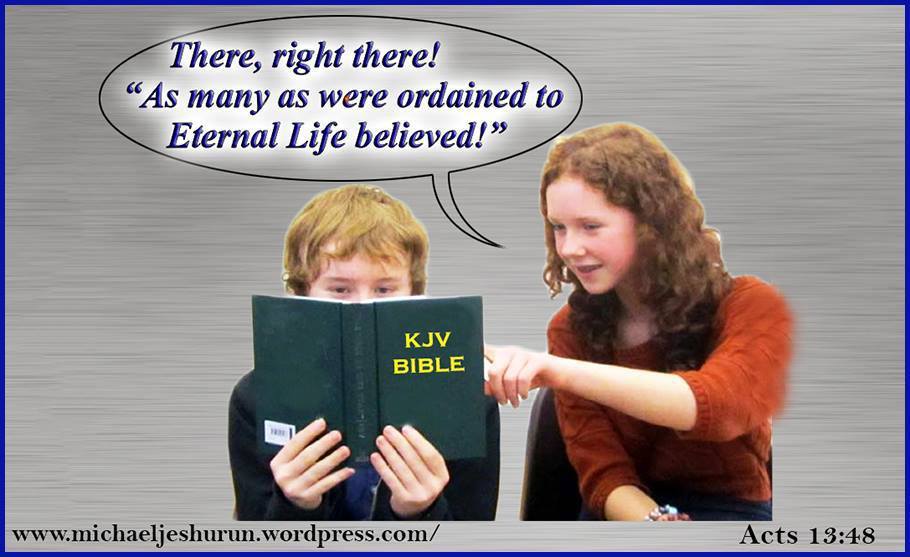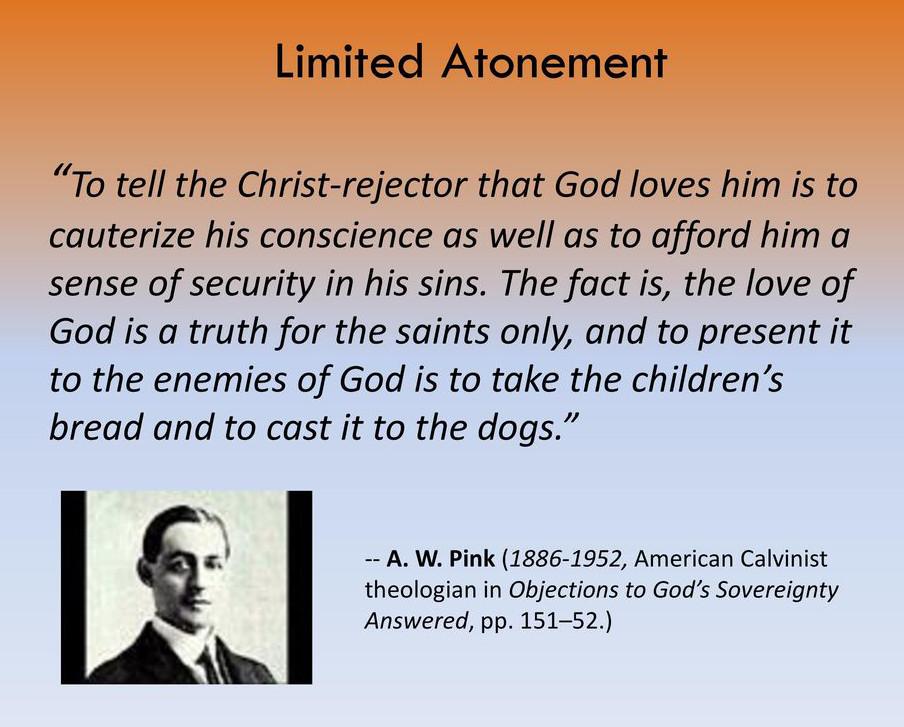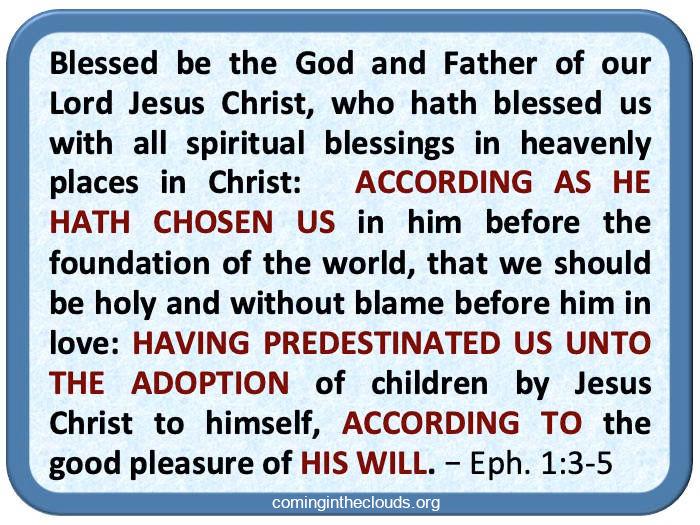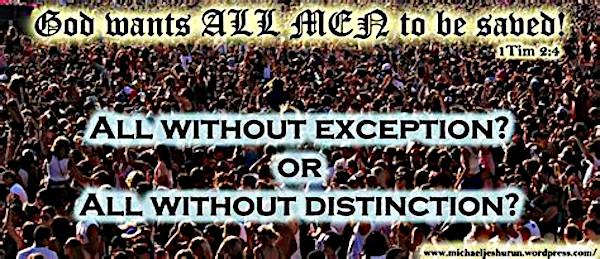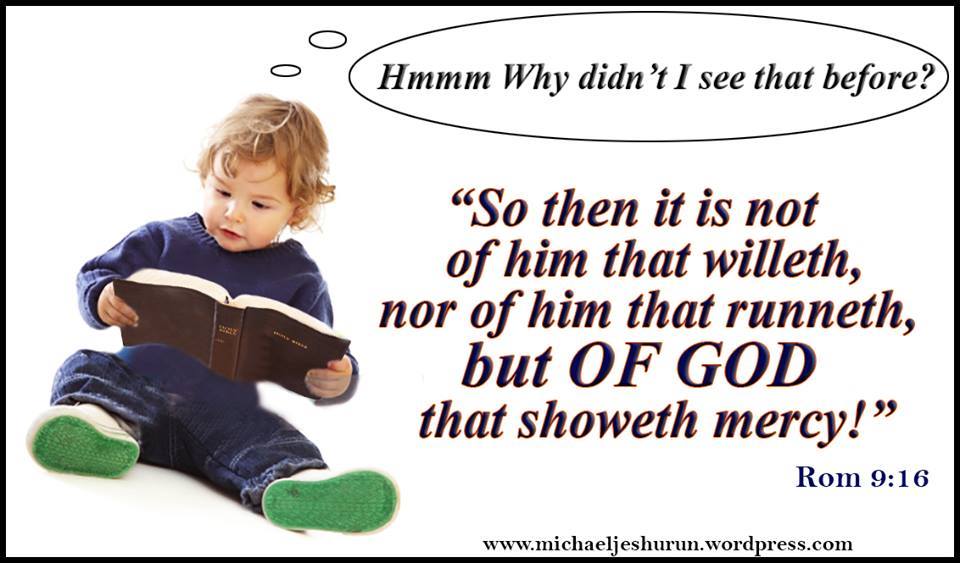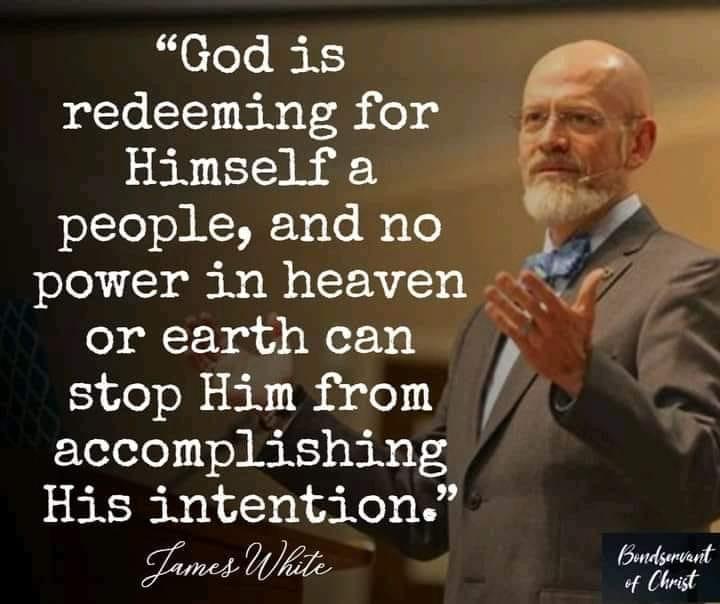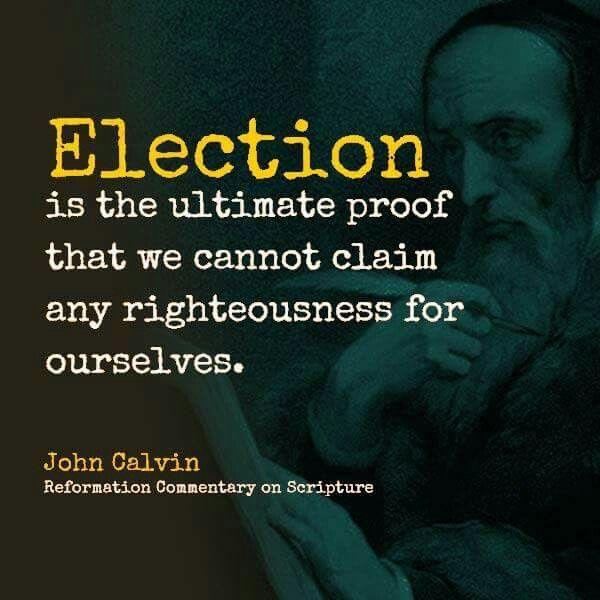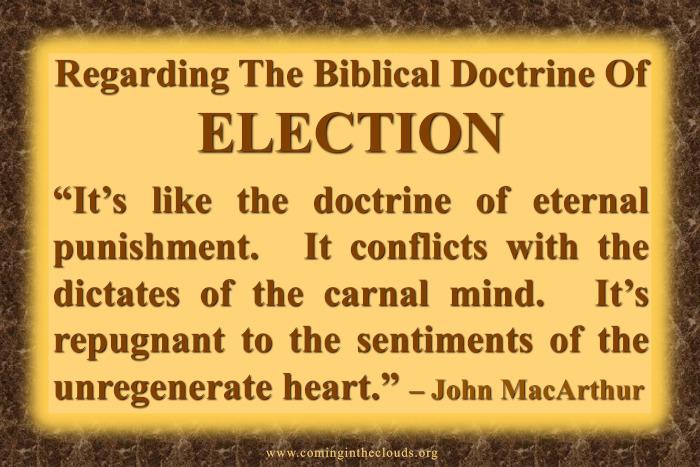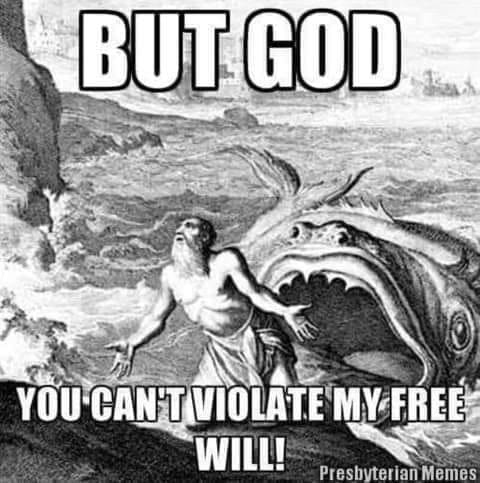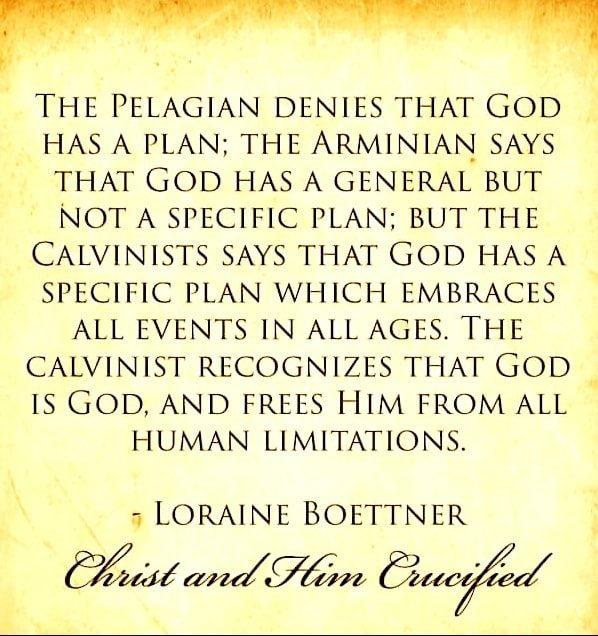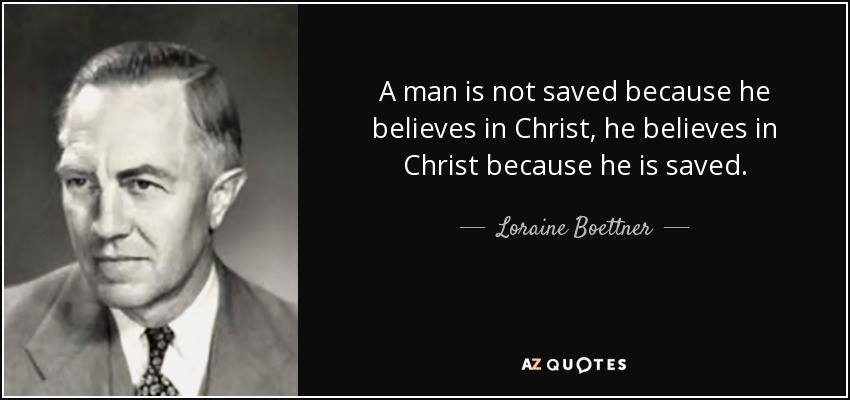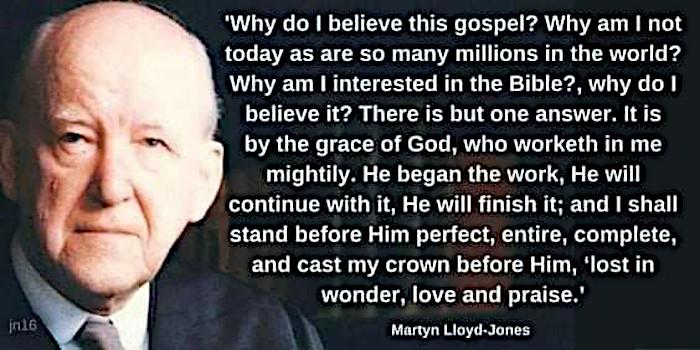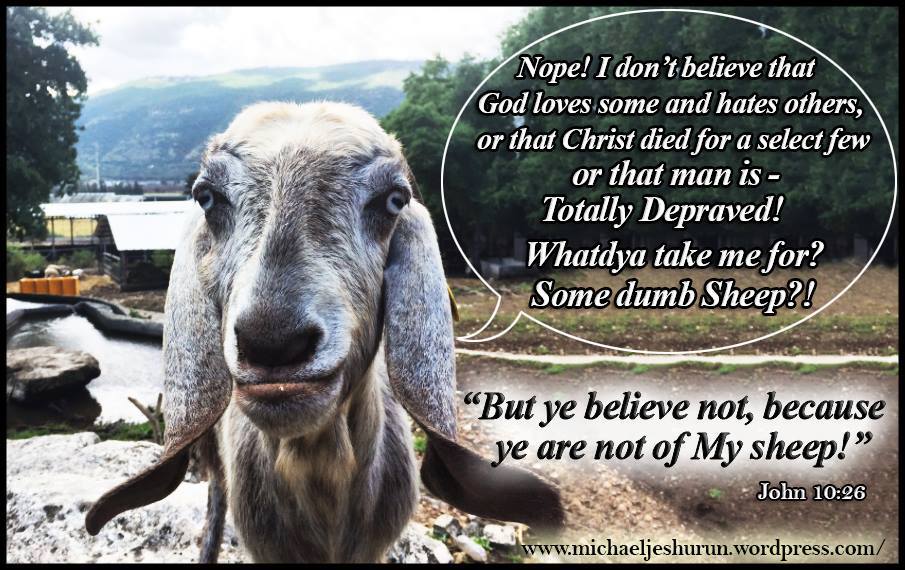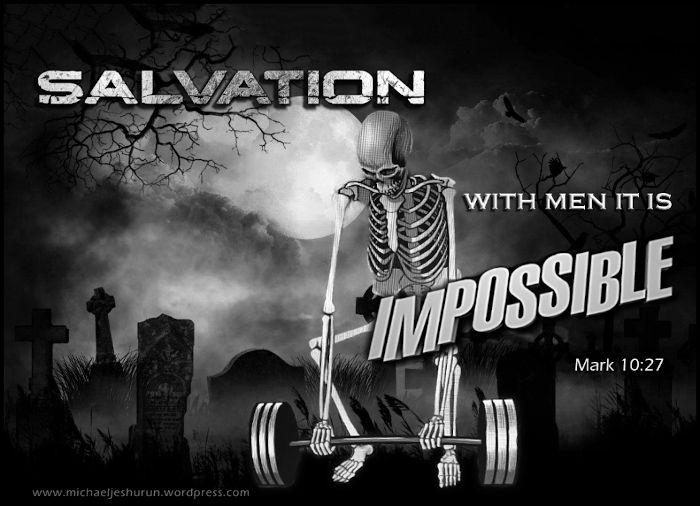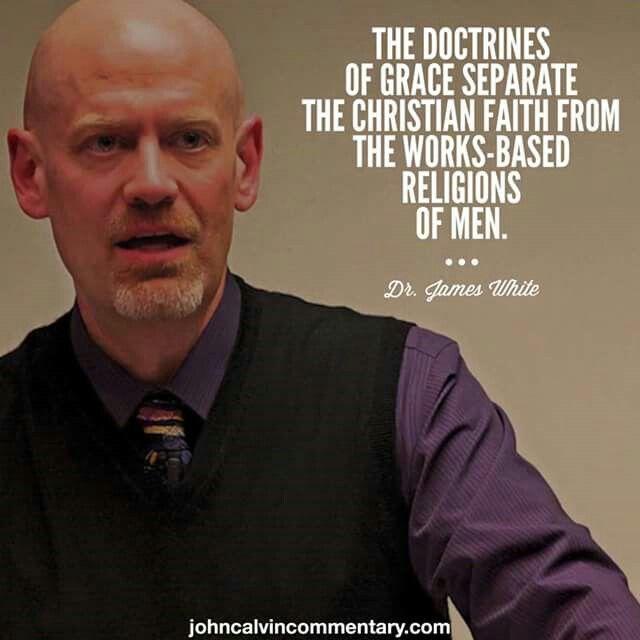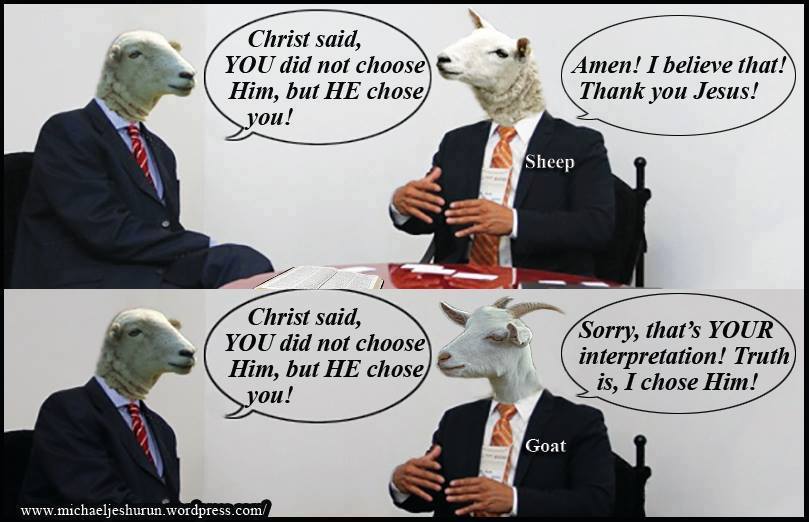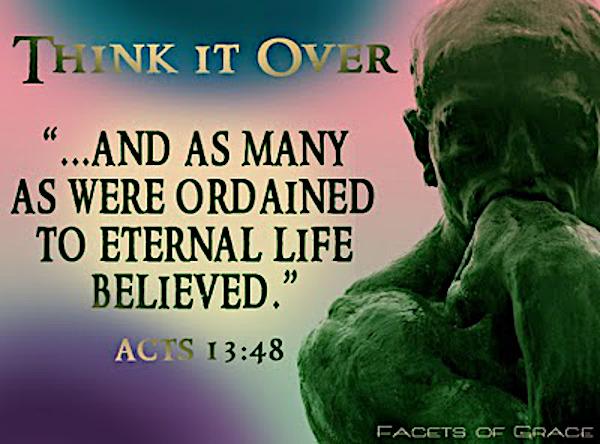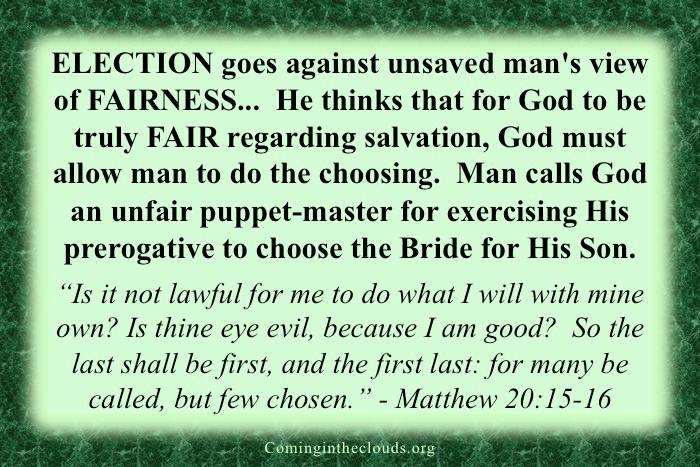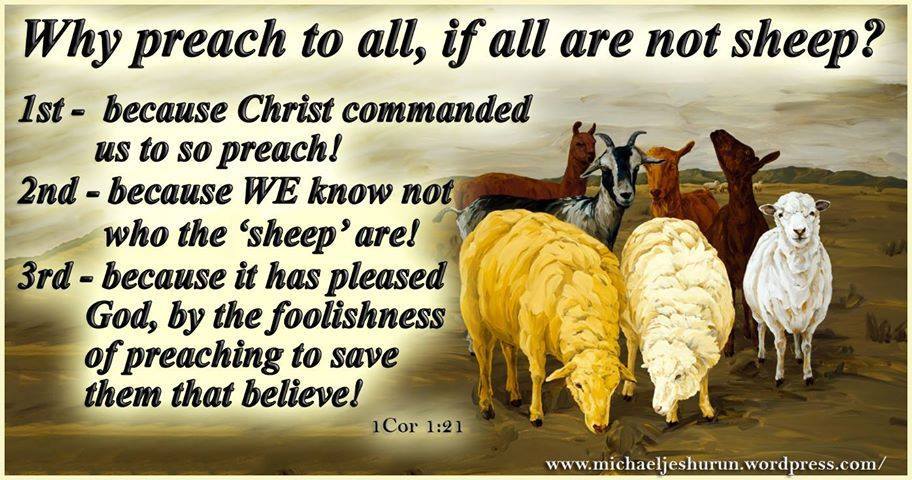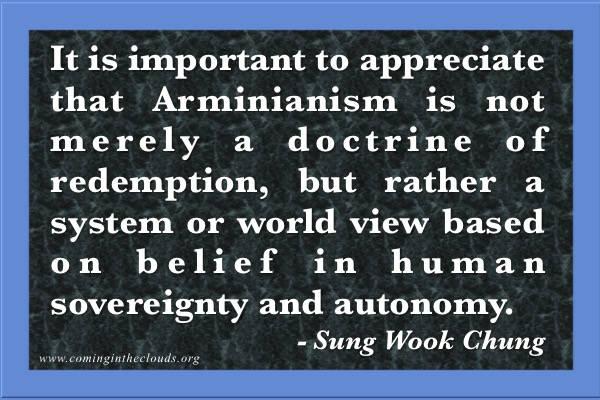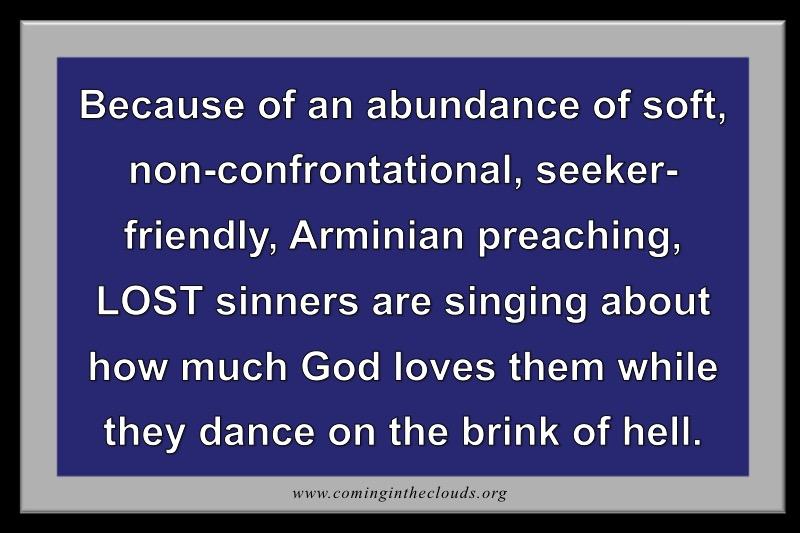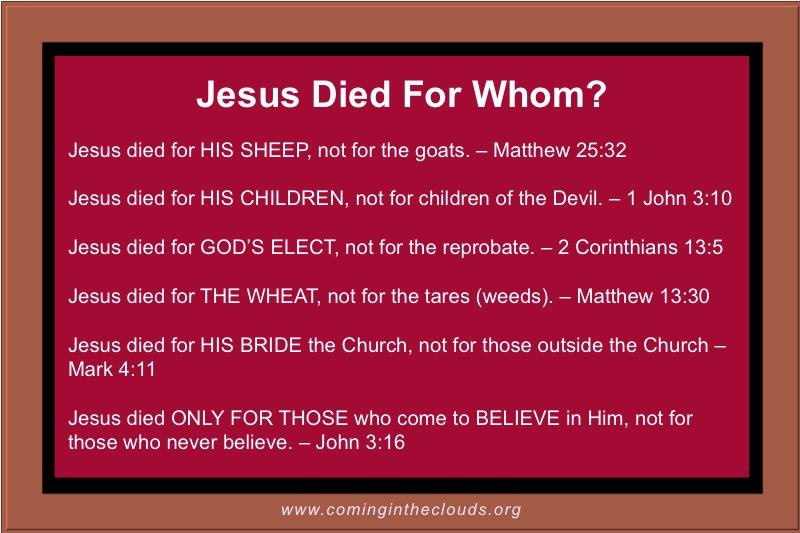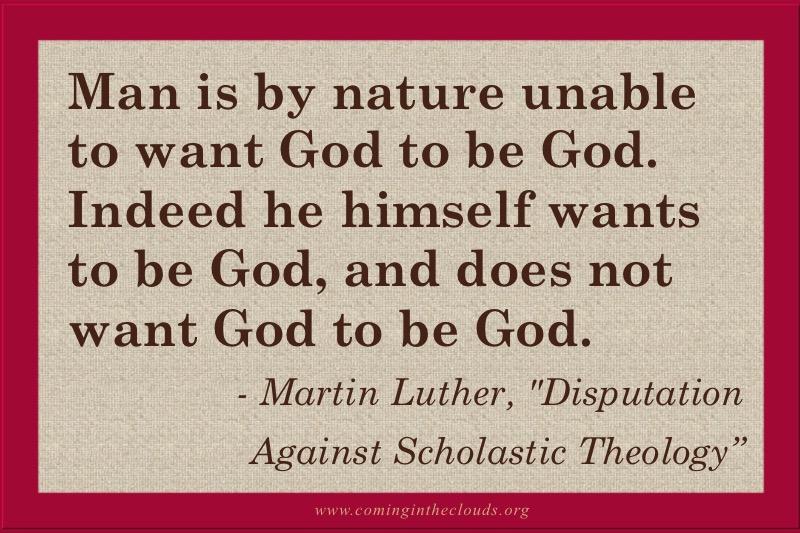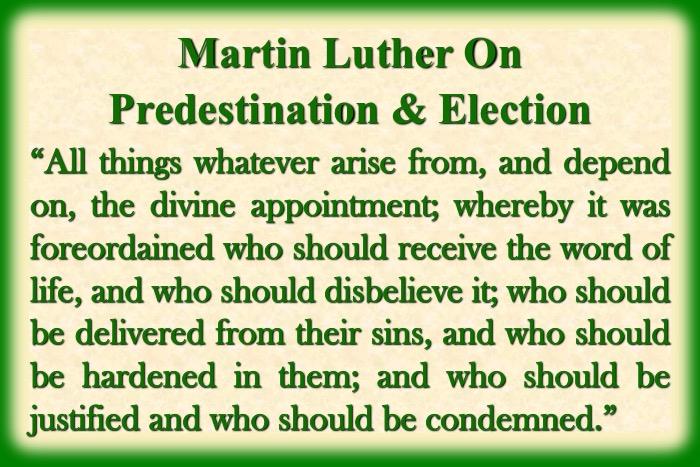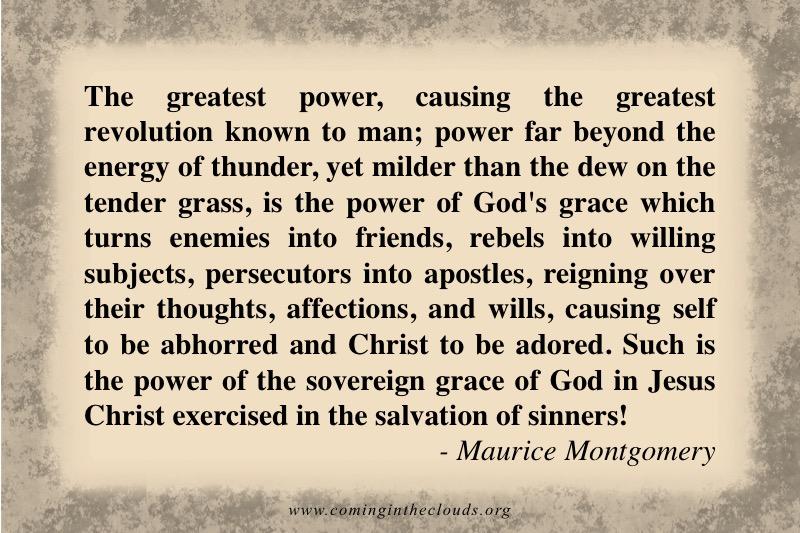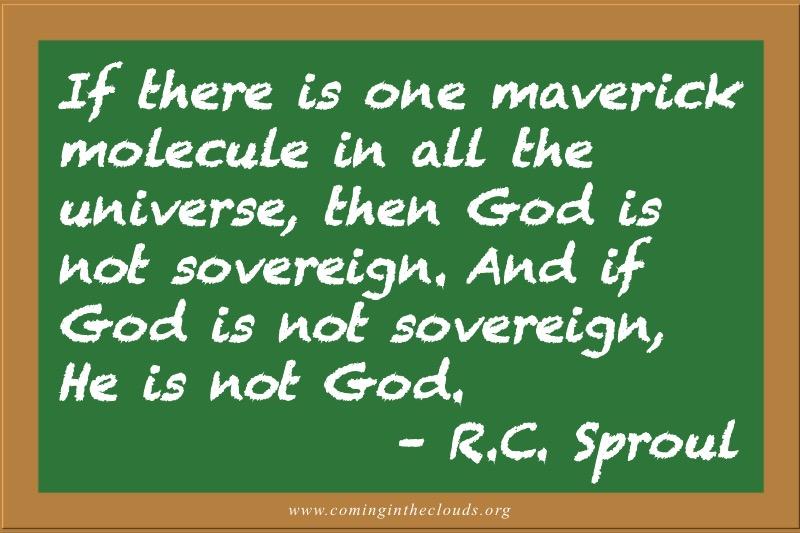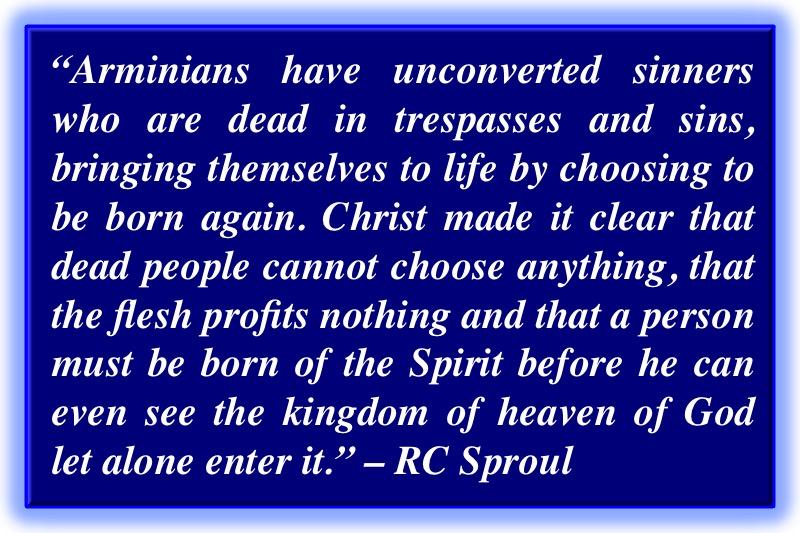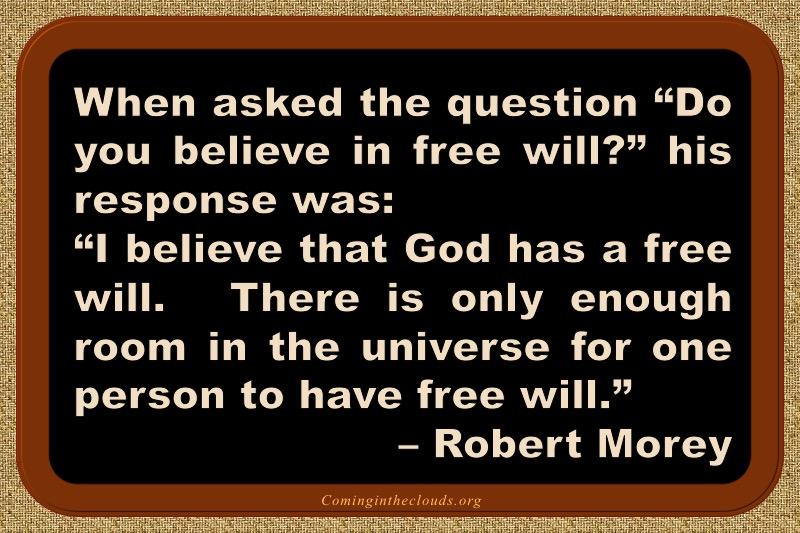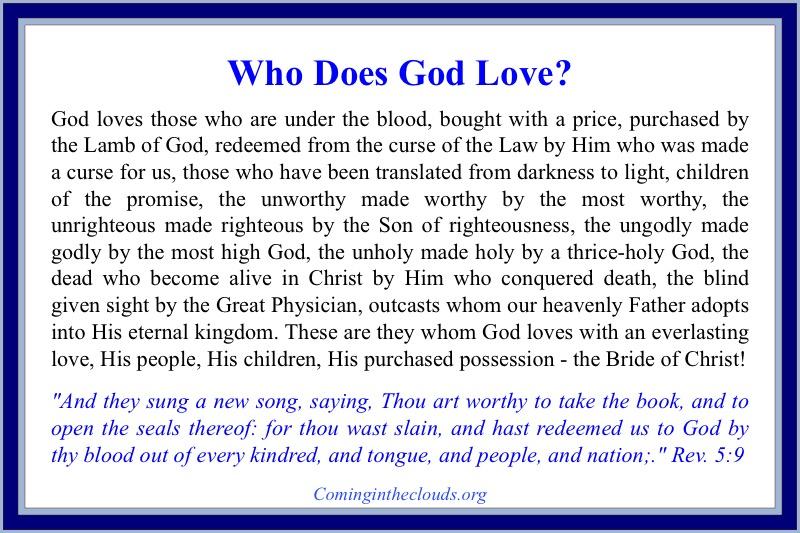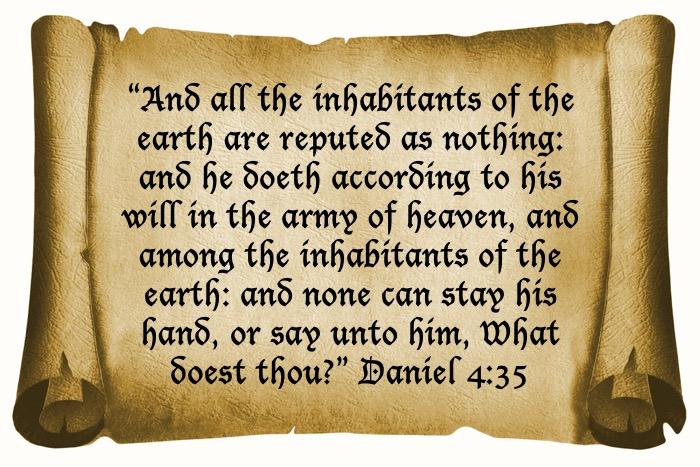The Foreknowledge Of God By Arthur W. Pink
From His Book: The Attributes Of God
What controversies have been engendered by this subject in the past! But what truth of Holy Scripture is there which has not been made the occasion of theological and ecclesiastical battles? The deity of Christ, His virgin birth, His atoning death, His second advent; the believer’s justification, sanctification, security; the church, its organization, officers, discipline; baptism, the Lord’s supper and a score of other precious truths might be mentioned. Yet, the controversies which have been waged over them did not close the mouths of God’s faithful servants; why, then, should we avoid the vexing question of God’s foreknowledge, because, forsooth, there are some who will charge us with fomenting strife? Let others contend if they will, our duty is to bear witness according to the light vouchsafed us.
There are two things concerning the foreknowledge of God about which many are in ignorance: the meaning of the term, and its Scriptural scope. Because this ignorance is so widespread, it is an easy matter for preachers and teachers to palm off perversions of this subject, even upon the people of God. There is only one safeguard against error, and that is to be established in the faith; and for that, there has to be prayerful and diligent study, and a receiving with meekness the engrafted Word of God. Only then are we fortified against the attacks of those who assail us. There are those today who are misusing this very truth in order to discredit and deny the absolute sovereignty of God in the salvation of sinners. just as higher critics are repudiating the divine inspiration of the Scriptures; evolutionists, the work of God in creation; so some pseudo Bible teachers are perverting His foreknowledge in order to set aside His unconditional election unto eternal life.
When the solemn and blessed subject of divine foreordination is expounded, when God’s eternal choice of certain ones to be conformed to the image of His Son is set forth, the enemy sends along some man to argue that election is based upon the foreknowledge of God, and this ‘foreknowledge’ is interpreted to mean that God foresaw certain ones would be more pliable than others, that they would respond more readily to the strivings of the Spirit, and that because God knew they would believe, He accordingly, predestinated them unto salvation. But such a statement is radically wrong. It repudiates the truth of total depravity, for it argues that there is something good in some men. It takes away the independency of God, for it makes His decrees rest upon what He discovers in the creature. It completely turns things upside down, for in saying God foresaw certain sinners would believe in Christ, and that because of this, He predestinated them unto salvation, is the very reverse of the truth. Scripture affirms that God, in His high sovereignty, singled out certain ones to be recipients of His distinguishing favours (Acts 13:48), and therefore He determined to bestow upon them the gift of faith. False theology makes God’s foreknowledge of our believing the cause of His election to salvation; whereas, God’s election is the cause, and our believing in Christ is the effect.
Ere proceeding further with our discussion of this much misunderstood theme, let us pause and define our terms. What is meant by ‘foreknowledge’? ‘To know beforehand,’ is the ready reply of many. But we must not jump to conclusions, nor must we turn to Webster’s dictionary as the final court of appeal, for it is not a matter of the etymology of the term employed. What is needed is to find out how the word is used in Scripture. The Holy Spirit’s usage of an expression always defines its meaning and scope. It is failure to apply this simple rule which is responsible for so much confusion and error. So many people assume they already know the signification of a certain word used in Scripture, and then they are too dilatory to test their assumptions by means of a concordance. Let us amplify this point.
Take the word ‘flesh.’ Its meaning appears to be so obvious that many would regard it as a waste of time to look up its various connections in Scripture. It is hastily assumed that the word is synonymous with the physical body, and so no inquiry is made. But, in fact, ‘flesh’ in Scripture frequently includes far more than what is corporeal; all that is embraced by the term can only be ascertained by a diligent comparison of every occurrence of it and by a study of each separate context. Take the word ‘world.’ The average reader of the Bible imagines this word is the equivalent for the human race, and consequently, many passages where the term is found are wrongly interpreted. Take the word ‘immortality.’ Surely it requires no study! Obviously it has reference to the indestructibility of the soul. Ah, my reader, it is foolish and wrong to assume anything where the Word of God is concerned. If the reader will take the trouble to carefully examine each passage where ‘mortal’ and ‘immortal’ are found, it will be seen that these words are never applied to the soul, but always to the body.
Now what has been said on ‘flesh,’ the ‘world,’ ‘immortality,’ applies with equal force to the terms ‘know’ and ‘foreknow.’ Instead of imagining that these words signify no more than a simple cognition, the different passages in which they occure require to be carefully weighed. The word ‘foreknowledge’ is not found in the Old Testament. But ‘know’ occurs there frequently. When that term is used in connection with God, it often signifies to regard with favour, denoting not mere cognition but an affection for the object in view. ‘I know thee by name’ (Exo 33:17). ‘Ye have been rebellious against the LORD from the day that I knew you’ (Deut 9:24). ‘Before I formed thee in the belly I knew thee’ (Ver 1:5). ‘They have made princes, and I knew it not’ (Hosea 8:4). ‘You only have I known of all the families of the earth’ (Amos 3:2). In these passages ‘knew’ signifies either loved or appointed.
In like manner, the word ‘know’ is frequently used in the New Testament, in the same sense as in the Old Testament. ‘Then will I profess unto them, I never knew you’ (Matt 7:23). ‘I am the good shepherd and know My sheep and am known of Mine’ (John 10:14). ‘If any man love God, the same is known of Him’ (1 Cor 8:3). ‘The Lord knoweth them that are His’ (2 Tim 2:19).
Now the word ‘foreknowledge’ as it is used in the New Testament is less ambiguous than in its simple form ‘to know.’ If every passage in which it occurs is carefully studied, it will be discovered that it is a moot point whether it ever has reference to the mere perception of events which are yet to take place. The fact is that ‘foreknowledge’ is never used in Scripture in connection with events or actions; instead, it always has reference to persons. It is persons God is said to ‘foreknow,’ not the actions of those persons. In proof of this we shall now quote each passage where this expression is found.
The first occurrence is in Acts 2:23. There we read, ‘Him being delivered by the determinate counsel and foreknowledge of God, ye have taken, and by wicked hands have crucified and slain.’ If careful attention is paid to the wording of this verse, it will be seen that the Apostle was not there speaking of God’s foreknowledge of the act of the crucifixion, but of the Person crucified: ‘Him [Christ] being delivered by…’
The second occurrence is in Romans 8:29,30. ‘For whom He did foreknow, He also did predestinate to be conformed to the image of His Son, that He might be the Firstborn among many brethren. Moreover whom He did predestinate, them He also called.’ Weigh well the pronoun that is used here. It is not what He did foreknow, but whom He did. It is not the surrendering of their wills nor the believing of their hearts, but the persons themselves, that are here in view.
‘God hath not cast away His people which He foreknew’ (Rom 11:2). Once more the plain reference is to persons, and to persons only.
The last mention is in I Peter 1:2: ‘Elect according to the foreknowledge of God the Father.’ Who are ‘elect according to the foreknowledge of God the Father?’ The previous verse tells us: the reference is to the ‘strangers scattered,’ i.e., the Diaspora, the Dispersion, the believing Jews. Thus, here too the reference is to persons, and not to their foreseen acts.
Now in view of these passages (and there are no more) what Scriptural ground is there for anyone saying God ‘foreknew’ the acts of certain ones, viz., their ‘repenting and believing,’ and that because of those acts He elected them unto salvation? The answer is: None whatever. Scripture never speaks of repentance and faith as being foreseen or foreknown by God. Truly, He did know from all eternity that certain ones would repent and believe, yet this is not what Scripture refers to as the object of God’s foreknowledge. The word uniformly refers to God’s foreknowing persons; then let us ‘hold fast the form of sound words’ (2 Tim 1:13).
Another thing to which we desire to call particular attention is that the first two passages quoted above show plainly and teach implicity that God’s foreknowledge is not causative, that instead, something else lies behind, precedes it, and that something is His own sovereign decree. Christ was ‘delivered by the [1] determinate counsel and [2] foreknowledge of God’ (Acts 2:23). His counsel or decree was the ground of His foreknowledge. So again in Rom. 8:29. That verse opens with the word ‘for,’ which tells us to look back to what immediately precedes. What, then, does the previous verse say? This: ‘All things work together for good to them … who are the called according to His purpose.’ Thus God’s foreknowledge is based upon His ‘purpose’ or decree (see Psa 2:7).
God foreknows what will be because He has decreed what shall be. It is therefore a reversing of the order of Scripture, a putting of the cart before the horse, to affirm that God elects because He foreknows people. The truth is, He foreknows because He has elected. This removes the ground or cause of election from outside the creature, and places it in God’s own sovereign will. God purposed in Himself to elect a certain people, not because of anything good in them or from them, either actual or foreseen, but solely out of His own mere pleasure. As to why He chose the ones He did, we do not know, and can only say, ‘Even so, Father: for so it seemed good in Thy sight.’ The plain truth in Romans 8:29 is that God, before the foundation of the world, singled out certain sinners and appointed them unto salvation (2 Thess 2:13). This is clear from the concluding words of the verse: ‘Predestinate to be conformed to the image of His Son.’ God did not predestinate those whom He foreknew were conformed,’ but, on the contrary, those whom He ‘foreknew’ (i.e., loved and elected) He predestinated ‘to be conformed.’ Their conformity to Christ is not the cause, but the effect of God’s foreknowledge and predestination.
God did not elect any sinner because He foresaw that he would believe, for the simple but sufficient reason that no sinner ever does believe until God gives him faith; just as no man sees until God gives him sight. Sight is God’s gift, seeing is the consequence of my using His gift. So faith is God’s gift (Eph 2:8,9), believing is the consequence of my using His gift. If it were true that God had elected certain ones to be saved because in due time they would believe, then that would make believing a meritorious act, and in that event the saved sinner would have ground for ‘boasting,’ which Scripture emphatically denies (Eph 2:9).
Surely God’s Word is plain enough in teaching that believing is not a meritorious act. It affirms that Christians are a people who ‘have believed through grace’ (Acts 18:27). If, then, they have believed ‘through grace,’ there is absolutly nothing meritorious about ‘believing,’ and if nothing meritorious, it could not be the ground or cause which moved God to choose them. No; God’s choice proceeds not from anything in us, or anything from us, but solely from His own sovereign pleasure. Once more, in Romans 11:5, we read of ‘a remnant according to the election of grace.’ There it is, plain enough; election itself is of grace, and grace is unmerited favour, something for which we had no claim upon God whatsoever.
It thus appears that it is highly important for us to have clear and spiritual views of the foreknowledge of God. Erroneous conceptions about it lead inevitably to thoughts most dishonouring to Him. The popular idea of divine foreknowledge is altogether inadequate. God not only knew the end from the beginning, but He planned, fixed, predestinated everything from the beginning. And, as cause stands to effect, so God’s purpose is the ground of His prescience. If then the reader be a real Christian, he is so because God chose him in Christ before the foundation of the world (Eph 1:4), and chose not because He foresaw you would believe, but chose simply because it pleased Him to choose; chose you notwithstanding your natural unbelief. This being so, all the glory and praise belongs alone to Him. You have no ground for taking any credit to yourself. You have ‘believed through grace’ (Acts 18:27), and that, because your very election was ‘of grace’ (Rom 11:5).

